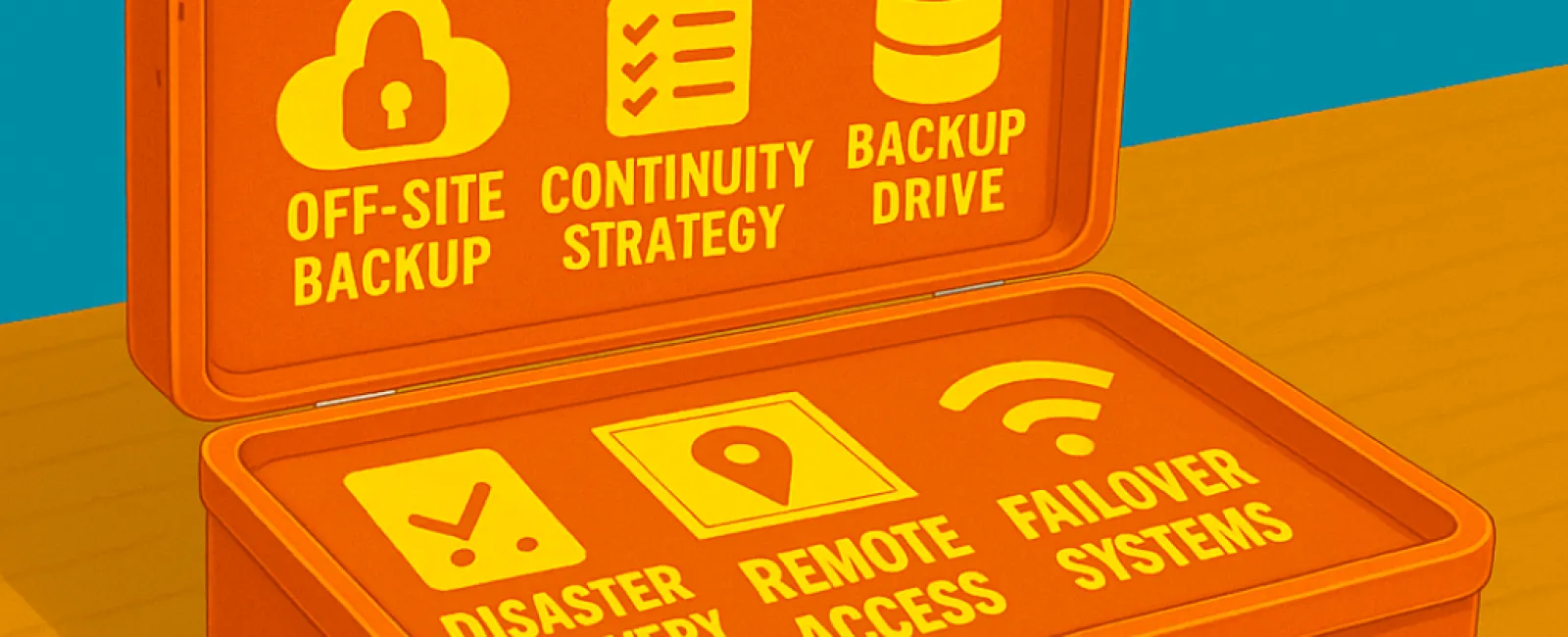July 28, 2025
Unexpected power failures, cyber threats, hardware malfunctions, and natural catastrophes can strike without notice, severely impacting small businesses. While many believe that having backups is sufficient, the reality is that simply restoring files doesn't guarantee your business stays operational. Without access to critical systems, the ability to support remote work, or clear communication with your team and clients, even brief interruptions can cause prolonged damage. A dependable IT partner should equip you not only with backups but also with a comprehensive strategy to ensure your business remains fully functional under any circumstance.
Backups Alone Aren't Enough — You Need a Robust Continuity Strategy
Backups are vital, but they represent only a fraction of what's necessary. What truly safeguards your business is a business continuity plan, a forward-thinking approach designed to keep your operations running smoothly during and after any disruption.
When systems fail, files become unreachable, or your office is inaccessible, relying solely on local backup files offers little relief. Without a swift and clear recovery plan, your business faces significant risks including lost revenue, damaged reputation, and regulatory non-compliance.
Understanding the Critical Difference: Backups vs. Business Continuity
Many businesses overlook this crucial distinction:
● Backups enable data restoration.
● Continuity ensures uninterrupted business operations regardless of the challenge.
A well-crafted continuity plan addresses essential questions, such as:
● How quickly can we resume normal operations?
● Where will our team work if the main office becomes unusable?
● Which systems are absolutely critical for daily functions?
● Who is accountable for initiating the recovery process?
It also incorporates key elements like:
● Encrypted, off-site, and immutable backups
● Prioritized recovery objectives (RTO/RPO)
● Preparedness for remote work scenarios
● Redundant systems and automatic failovers
● Routine disaster simulation drills
If your IT provider cannot confidently guide you through these critical areas, your business is not truly protected — just fortunate so far.
Could This Happen to Your Business?
This isn't merely a cautionary tale to pressure you into action. These are real-world disasters with tangible consequences. Recent events include:
● Florida hurricanes forced hundreds of businesses to halt operations, especially those without cloud access.
● North Carolina floods destroyed on-site servers, wiping out months of critical data.
● California wildfires obliterated entire offices, many lacking off-site recovery plans.
● Numerous small businesses struck by ransomware discovered their backups were either corrupted or untested.
Disasters don't discriminate by business size — they can impact your company at any time.
Essential Questions You Should Be Asking Now
If disaster struck tomorrow, could your business maintain operations?
Consult your IT provider and ask:
● How quickly can we recover if ransomware attacks?
● Are our backups regularly tested, and which systems are covered?
● What's the contingency if a flood or fire disables our office?
● Does our continuity plan comply with all industry regulations?
● Can we continue to serve clients if our team works remotely?
If you can't answer these confidently, your business may already be vulnerable.
Disasters Are Inevitable, Downtime Isn't.
You can't prevent every outage or attack, but you can control how your business responds.
A competent IT provider helps you bounce back.
An exceptional one ensures your business never misses a beat.
Curious about your current readiness?
Click Here or call us at 252-240-3399 to schedule your FREE 15-Minute Discovery Call, and let's ensure a disaster never causes downtime for your business.



